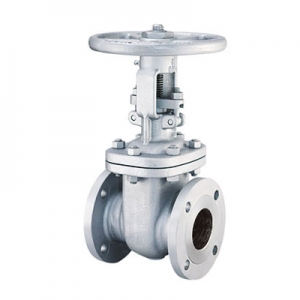In today’s fast-paced digital landscape, Google Pay-Per-Click (PPC) advertising stands out as one of the most efficient ways to drive immediate and targeted traffic to your website. Whether you're aiming to generate leads, promote products, or increase brand visibility, Google Ads offers unmatched reach and precision. However, success in PPC isn’t just about launching ads. It’s about how well those ads are managed.
Google PPC management is the strategic process of planning, executing, and continuously optimizing campaigns within the Google Ads platform. Effective management can significantly improve your return on investment (ROI), lower costs, and drive better results.
In this article, we will explore what Google PPC management entails, why it matters, and how businesses can leverage it for maximum impact.
What is Google PPC Management?
Google PPC management refers to the process of overseeing and optimizing paid ad campaigns run through Google Ads. It involves setting goals, choosing the right keywords, writing compelling ads, targeting specific audiences, tracking performance, and continuously refining strategies.
A well-managed Google Ads campaign can help you:
-
Increase website traffic
-
Generate qualified leads
-
Boost online sales
-
Enhance brand visibility
-
Control and optimize advertising spend
PPC management is not a one-time task. It requires ongoing adjustments and analysis to ensure your campaigns remain effective and aligned with your business objectives.
Why Choose Google Ads for PPC?
Google processes more than 8.5 billion searches each day, making it the largest search engine in the world. Advertising on Google gives businesses instant access to people who are actively searching for products and services just like yours.
Here are some compelling reasons to use Google Ads:
-
Massive reach with a global audience
-
Flexible targeting options by location, demographics, interests, and behavior
-
Multiple ad formats including search, display, shopping, video, and app campaigns
-
Full control over budget and bids
-
Transparent performance metrics
But tapping into the power of Google Ads requires more than setting up a campaign. That’s where professional PPC management comes in.
Key Components of Google PPC Management
Keyword Research and Targeting
The foundation of any PPC campaign is strong keyword research. This involves identifying search terms that potential customers use and aligning your ads with those queries. Effective keyword strategies include:
-
Targeting high-intent, buyer-ready keywords
-
Using long-tail keywords for more specific targeting
-
Applying different match types (broad, phrase, exact) strategically
-
Adding negative keywords to avoid irrelevant clicks
Tools like Google Keyword Planner, Ubersuggest, and SEMrush are commonly used to find the most profitable keyword opportunities.
Writing Effective Ad Copy
Ad copy plays a critical role in attracting clicks and converting users. Well-managed campaigns include ad copy that:
-
Addresses the searcher's intent
-
Highlights benefits and unique selling points
-
Contains a clear call to action
-
Utilizes ad extensions such as site links, callouts, and phone numbers
Split testing different headlines and descriptions helps identify which combinations drive the best results.
Landing Page Optimization
An optimized landing page ensures that the traffic you’re paying for actually converts. Important elements of a high-performing landing page include:
-
Fast loading speed
-
Mobile responsiveness
-
Clear and persuasive messaging
-
Visual appeal and branding consistency
-
Prominent calls to action
A strong alignment between ad content and landing page increases your Quality Score, which can lower your cost per click (CPC).
Budget and Bid Management
Google Ads offers a variety of bidding strategies that align with different campaign goals. These include:
-
Manual CPC (cost-per-click)
-
Enhanced CPC
-
Maximize conversions
-
Target CPA (cost per acquisition)
-
Target ROAS (return on ad spend)
Managing your bids effectively ensures that you don’t overspend on low-performing ads or miss out on high-converting opportunities.
Audience and Geographic Targeting
Google allows advertisers to target users based on demographics, location, interests, behavior, and past interactions. Some options include:
-
In-market audiences who are actively researching
-
Custom intent audiences tailored to your business
-
Remarketing to users who previously visited your site
-
Geographic targeting to focus on specific regions or cities
Audience segmentation allows for more personalized messaging and better results.
Conversion Tracking and Analytics
You can’t manage what you don’t measure. Conversion tracking is essential for understanding which ads and keywords are driving results. Metrics to monitor include:
-
Click-through rate (CTR)
-
Conversion rate
-
Cost per conversion
-
Impression share
-
Quality Score
Using Google Analytics in conjunction with Google Ads gives deeper insights into user behavior and campaign performance.
Ongoing Optimization
Successful PPC management requires regular analysis and adjustments. This includes:
-
Pausing underperforming ads or keywords
-
Testing new ad variations
-
Adjusting bids based on performance
-
Refining targeting and audience segments
-
Updating negative keyword lists
Optimization is an ongoing process that keeps your campaigns competitive and aligned with business goals.
Benefits of Professional Google PPC Management
Many businesses choose to work with certified PPC experts or agencies for several reasons:
-
They bring expertise in campaign strategy and optimization
-
They use advanced tools for performance tracking and reporting
-
They save you time while improving your ROI
-
They stay current with Google Ads policies and updates
-
They can scale campaigns efficiently as your business grows
A well-managed campaign often pays for itself in terms of increased sales and lower cost per acquisition.
Common Mistakes to Avoid
Even experienced advertisers can fall into these common PPC pitfalls:
-
Targeting overly broad keywords that attract the wrong traffic
-
Failing to use negative keywords, leading to wasted spend
-
Writing generic or irrelevant ad copy
-
Ignoring Quality Score and its impact on CPC
-
Sending traffic to the homepage instead of optimized landing pages
-
Not tracking conversions properly
Avoiding these mistakes helps maximize your advertising budget and improves overall performance.
In-House vs. Outsourced PPC Management
Should you manage PPC internally or outsource it? Here’s a quick comparison.
In-House Management
-
More control over campaigns
-
Better alignment with internal marketing goals
-
Requires dedicated time and training
Outsourced Management
-
Access to expert knowledge and experience
-
Faster setup and results
-
Use of premium tools and insights
-
Frees up internal resources
The choice depends on your business size, budget, and internal capabilities. Many businesses find that outsourcing delivers better results at a lower cost in the long run.
Final Thoughts
Google PPC management is an essential part of a successful digital marketing strategy. When managed properly, it can drive high-quality traffic, increase conversions, and grow your business cost-effectively. Whether you’re just getting started or looking to improve existing campaigns, a thoughtful and strategic approach to PPC can make a significant difference in your bottom line.







